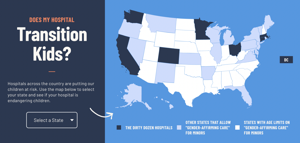In-home care rule change proposal generates more than 1,500 responses
More than 1,500 responses were generated by Independent Women in support of reversing 2013 changes helping make in-home care more affordable and accessible to seniors.
The Department of Labor’s rule change under the Trump administration would “significantly reshape the landscape for millions of in-home care workers and the families who rely on them, and the perspectives of everyday Americans will add more personal dimension to this proposed policy,” the nonprofit women’s organization said in a release.
Independent Women says the proposed rule would “Reinstate the pre-2013 definition of companionship services, allowing many in-home caregivers, including those employed through third parties, to qualify for an exemption from overtime requirements once again.”
It would also “make in-home care more accessible and affordable again, so more families could find the help they need in the comfort of their own homes,” offering more freedom and flexibility to families and workers.
During the Obama administration, the Home Care Rule “narrowed the scope of the ‘companion exemption,’ a provision that had previously protected certain caregiving arrangements from rigid overtime requirements,” writes Heather Madden for Independent Women in The Conservateur. “Under the rule, if a caregiver devotes over 205 of their time to essential care tasks such as meal preparation, assistance with dressing, or transportation to medical appointments, the arrangement can no longer qualify for a companionship exemption.
“Additionally, caregivers employed through third-party agencies are entirely ineligible for this exemption.”
That makes care harder to find and afford, Independent Women says.
Congress in 1974 exempted workers in “domestic service” or providing “companionship services for individuals” from minimum wage and overtime requirements.
On July 25, the Wage and Hour Division suspended the 2013 rule while reevaluation takes place.
Settlement of keeping the 2013 rule or adopting the 2025 change could be enacted as soon as the fourth quarter of this calendar year.
Latest News Stories

Derailment disrupts train service for Chicago, New York, Washington, Miami

Senate pledges economic support for Russia-Ukraine deal as govt funding talks stall

Democratic candidates focus on national politics in campaign for U.S. Senate

Arizona Chamber praises new interstate natural gas pipeline

Dems oppose Trump’s bid to end mail-in ballots, voting machines

After two weeks fleeing Texas, House Democrats return, quorum reached

Trump says court’s tariff decision could lead to ‘catastrophic’ collapse

Trump: Zelenskyy could end Russia-Ukraine war ‘if he wants to’

$750 million facility to protect Texas cattle, wildlife from screwworm threat

Chicago posts fewest homicides since 2016, arrests rate also declines

Three years later, Inflation Reduction Act blamed for higher Medicare costs

Illinois quick hits: Prosecutors charge two more in Tren de Aragua case; Senate Energy and Public Utilities Committee meets today; Illinois Little League team loses in World Series








